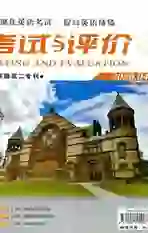同位语从句讲与练
2020-09-10丁道文
丁道文
一、 定义:主从复合句中用作同位语的句子,叫同位语从句。它是名词性从句之一,用以说明前面名词所表示的具体内容。
二、引导词:由that, whether, who, when, where, how, why 等引导。
三、先行词:常为某些抽象名词,如:news, idea, word, fact, hope, doubt, belief, possibility, problem, question, thought, promise, information, message, decision, answer, reply等。
四、位置:常紧跟在某些名词之后。但有时也被其他词隔开,叫作分隔式同位语从句。例如:
The fact that he is the cleverest in the class is known to all. 他是班上最聪明的,这个事实众所周知。
I am interested in the message that a famous star is coming tonight. 我对今晚一个明星要来的消息很感兴趣。
He got the news from Mary that the sports meeting was put off. 他从玛丽那里得知运动会推迟了。
五、 一些表示建议、命令、要求等的名词后所跟的同位语从句中谓语动词要用虚拟语气,即“should + do”,should可省略。例如:
My suggestion that they (should) start at once was accepted. 我建議他们马上出发,他们同意了。
This is our only request that this (should) be settled as soon as possible. 我们唯一的要求是尽快解决这个问题。
六、同位语从句和定语从句的区别:
1. 意义的不同
同位语从句是用于说明所修饰名词的具体内容的,它与被修饰词语之间通常可以划等号;而定语从句是限制所修饰名词的,它的作用是将所修饰的名词与其他类似的东西区别开来。例如:
We are glad at the news that he will come. 听到他要来这个消息我们很高兴。(news的内容就是that he will come,故that引导的是同位语从句)
We are glad at the news that he told us. 听到他告诉我们的这个消息我们很高兴。(that从句是限制the news的,即我们高兴只是因为他告诉我们的这个news而不是其他的news,故that从句为定语从句)
2. 引导词的不同
what, how, if, whatever 等可引导名词性从句,但不能引导定语从句。
3. 引导词在功能上的不同
that引导同位语从句时,它不充当句子成分,而引导定语从句时,它作为关系代词,既可以充当定语从句的主语,也可以充当定语从句的宾语。如上例 that he told us中的that就充当told的宾语。
4. 被修饰词语的区别
同位语从句所修饰的名词比较有限,通常有hope, wish, idea, news, fact, promise, opinion, suggestion, truth等,而定语从句所修饰的名词则非常广泛。 另外,when和where 引导定语从句时,通常只修饰表示时间和地点的名词,而它们引导同位语从句时却不一定;又如why引导定语从句时,它通常只修饰名词the reason,而它引导同位语从句时则不一定。例如:
I have no idea when they will come. 我不知道他们什么时候来。(同位语从句)I ll never forget the days when I lived there. 我永远不会忘记我住在那儿的日子。(定语从句)
We don t understand the problem why this is the best choice. 我们不明白为什么这是最好的选择。(同位语从句)
This is the reason why he didn t come to the meeting. 这就是他没来开会的原因。(定语从句)
【巩固练习】
1. The fact_______ she works hard is well known to us all.
A. that B. what C. why D. which
2. The fact_______ he was successful proves his ability.
A. that B. what C. which D. why
3. The news_______ he was kidnapped surprised us greatly.
A. what B. that C. why D. when
4. His suggestion_______ the meeting be delayed was turned down.
A. which B. that C. /_______ D. it
5. I have no idea_______ he will start.
A. when B. that C. what D. /
6. I ve come from the government with a message_______ the meeting won t be held tomorrow.
A. if_______ B. that
C. whether D. which
7. The thought_______ he might fail in the exam worried him.
A. when B. which C. what D. that
8. The order_______ the prisoner be set free arrived too late.
A. which_______ B. whether
C. that_______ D. what
9. The nurses are trying their best to reduce the patient s fear_______ he would die of the disease.
A. that B. as
C. of which D. which
10. He often asked me the question_______ the work was worth doing.
A. whether B. where_______
C. that D. when
11. Information has been put forward_______ more high school graduates will be_______ admitted into universities.
A. while B. that C. when D. as
12. It is said that more high school graduates will be admitted into universities; this is the_______ information_______ has been put forward.
A. what B. that C. when D. as
13. She heard a terrible noise,_______ brought her heart into her mouth.
A. it B. which C. this D. that
14. I can t believe the news_______ he was
_______ arrested.
A. it B. which C. this D. that
15. The fact_______ he failed in the exam is not the one_______ he told me.
A. which; that_______ B. that; /
C. which; which D. /; that (Key ? p. 37)
